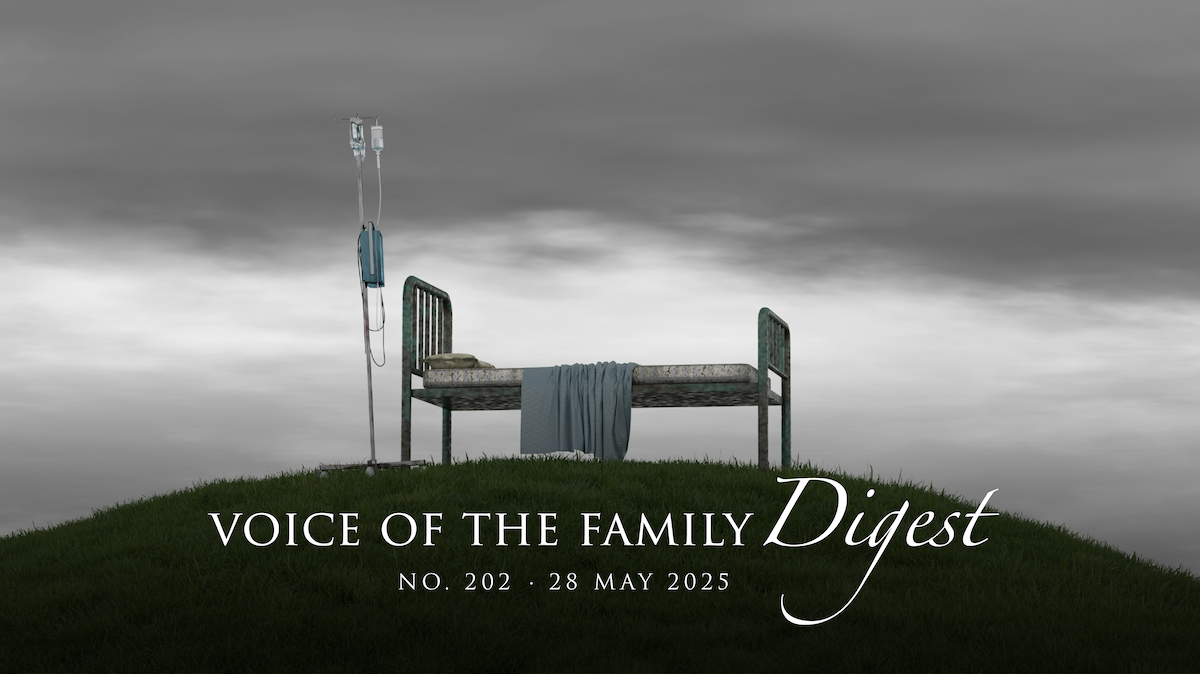Your action now could save countless lives
By John Smeaton | 28 May 2025

Time is running out in the battle against assisted suicide legislation in Britain. On 13 June, Members of Parliament in the UK are scheduled to vote one last time at the Third Reading of the Terminally Ill Adults (End of Life) Bill. We could win or lose by one vote. Your action now, whether you live in the UK or not, could save countless lives.
I am writing to my contacts, both at home and overseas, as a small personal contribution to the enormous efforts being made by so many groups and individuals to defeat this diabolical bill. Will you join me in writing to your family and friends and contacts in the UK, using, if you wish to do so, the very words I am using now for your convenience and to save precious time?
You may have already signed a petition or sent a pre-printed campaign postcard to your Member of Parliament. However, a personal letter or email, in your own words, is much more likely to make an impact.
If you live in the UK, you may have already written very recently to your Member of Parliament asking him or her to vote against this frightening legislation. But, if not, or if your last letter was written before the last parliamentary debate of 16 May 2025, please write a personal letter immediately to your MP asking him or her to vote against the Terminally Ill Adults (End of Life) Bill, introduced by Kim Leadbeater, the Labour MP for Spen Valley.
If you do not live in the UK, but you have family or friends who do live here, please write to them urging them to write to their Member of Parliament to oppose the Bill.
Invaluable, easy-to-read briefings on the assisted suicide legislation, prepared by the Society for the Protection of Unborn Children, can be found here, where you can find out the name of your MP by entering your postcode and send your personal message to him or her by email. Alternatively, you can post your personal letter to:
(MP’s name)
House of Commons
London
SW1A 0AA
And, wherever you live, please pray one decade of the Rosary, or any prayer, imploring God and His Blessed Mother to guide British MPs to vote against the Kim Leadbeater Bill at its Third Reading on 13 (or potentially 20) June.
Just as the Abortion Act 1967 has resulted in the killing of nearly 11 million babies over the past 57 years, the Terminally Ill Adults (End of Life) Bill could result in millions of patients being killed by doctors over a similar time frame.
According to Dutch News, euthanasia accounted for 5.9% of all deaths in 2024, compared with 5.4% in 2023. The same percentage rate would result in about 2 million killings in the UK over a 57 year period — but the percentage will undoubtedly continue to increase significantly during that period, just as has happened in Holland.
And as the percentage rises, social attitudes will change, and public resistance will weaken, just as has happened with abortion. And as resistance weakens, more and more doctors will make use of the provision in the legislation which allows them to discuss assisted suicide with their patients, all too easily causing vulnerable patients to conclude that their life is not worth living any more. Evidence internationally shows that many people request assisted suicide to avoid becoming a burden. In 2023, 43.3 per cent of people in Oregon gave this reason for requesting a lethal prescription (Oregon Death with Dignity Act 2023 Data Summary).
In 1994, a report published by the House of Lords Select Committee on Medical Ethics reviewed UK law on euthanasia and concluded that the procedure should not be legalised, on the grounds that:
“[The prohibition of intentional killing] is the cornerstone of law and of social relationships. It protects each one of us impartially, embodying the belief that all are equal. We do not wish that protection to be diminished and we therefore recommend that there should be no change in the law to permit euthanasia. … we do not think it possible to set secure limits on voluntary euthanasia. Some witnesses told us that to legalise voluntary euthanasia was a discrete step which need have no other consequences. But as we said in our introduction, issues of life and death do not lend themselves to clear definition, and without that it would not be possible to frame adequate safeguards against non-voluntary euthanasia if voluntary euthanasia were to be legalised. It would be next to impossible to ensure that all acts of euthanasia were truly voluntary, and that any liberalisation of the law was not abused. Moreover to create an exception to the general prohibition of intentional killing would inevitably open the way to further erosion whether by design, by inadvertence, or by the human tendency to test the limits of any regulation. These dangers are such that we believe that any decriminalisation of voluntary euthanasia would give rise to more, and more grave, problems than those it sought to address.”
In the short time before the final, historic vote in the UK’s House of Commons, let us pray that, with the help of God and with one more great human effort, the ancient wisdom found in these words will find its way into the hearts and minds of the UK’s parliamentarians and that Kim Leadbeater’s wicked legislation is decisively rejected.
